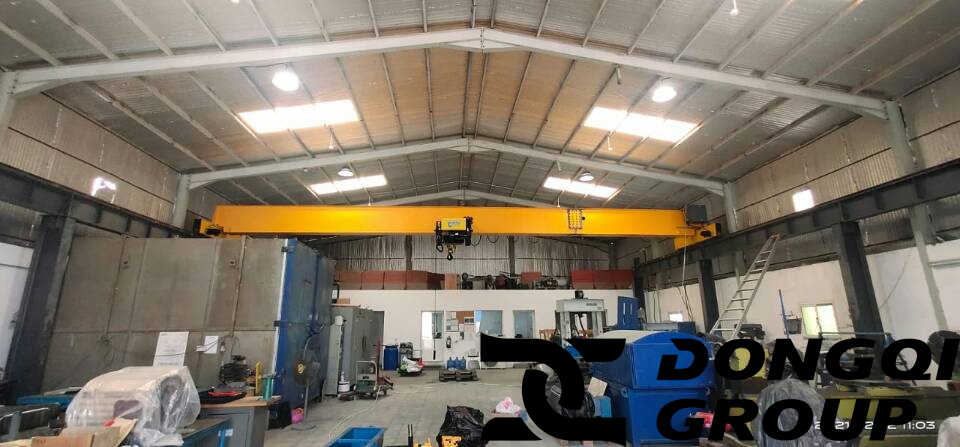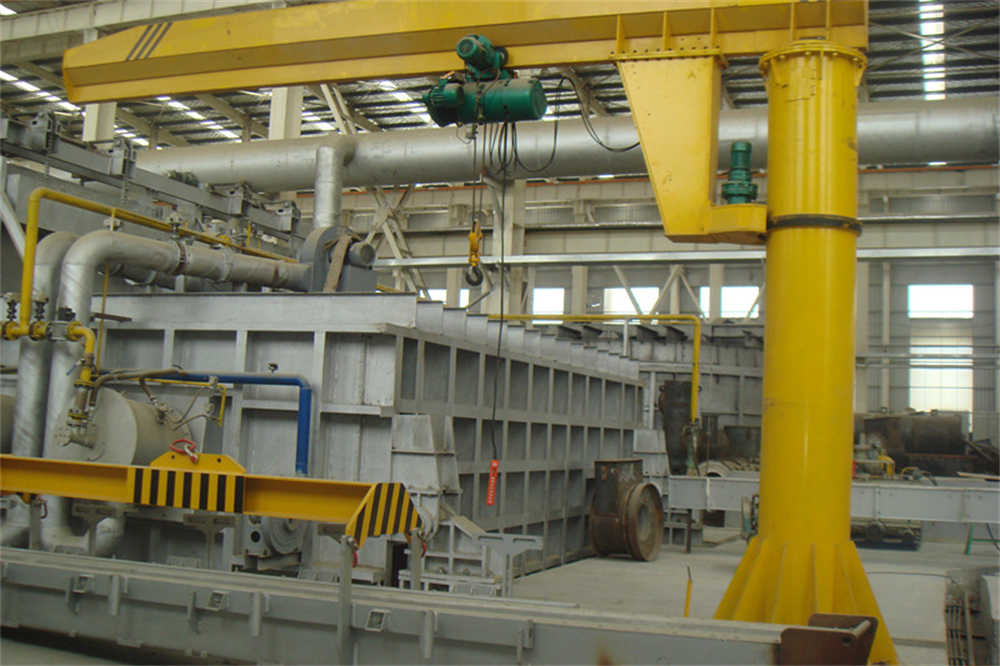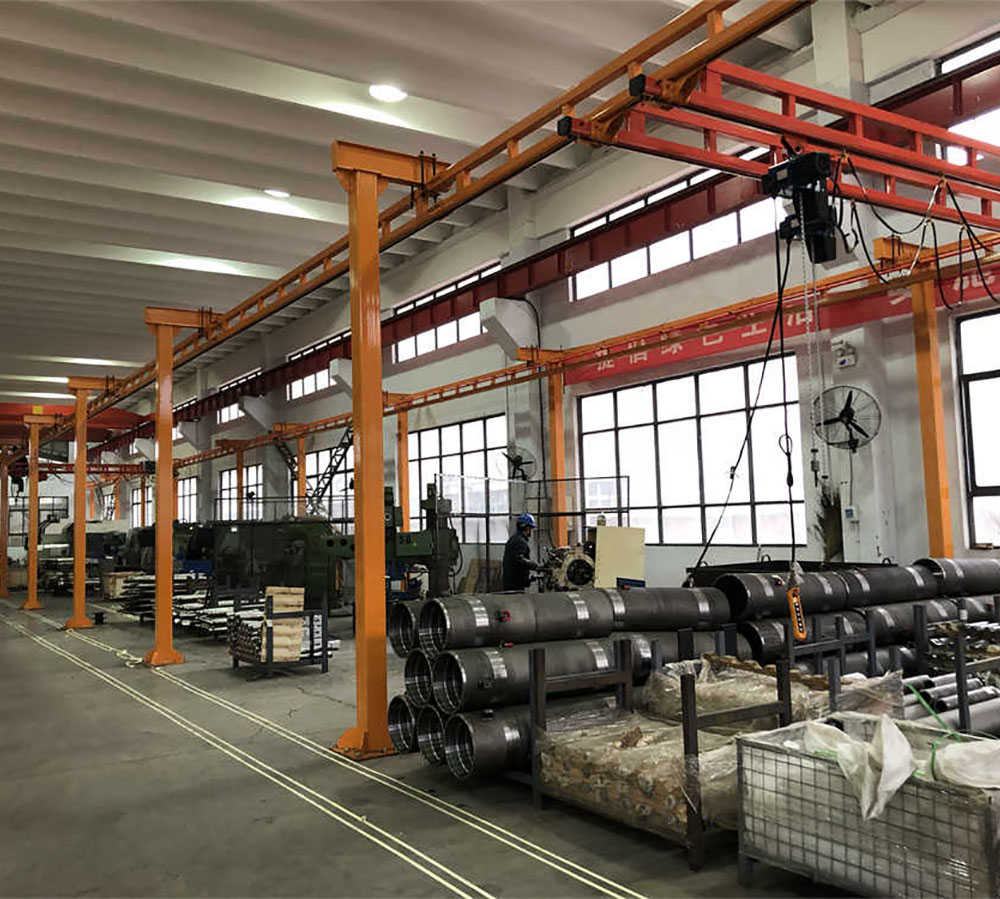General Manufacturing
General manufacturing facilities must maintain a constant flow of materials – from incoming prefab or raw materials all the way to packaging and shipping. When any work interruption is a production loss, the right lifting equipment and service will help keep your general manufacturing workflow running at its best.
Pakistan’s general manufacturing industry has seen some growth in recent years, but it still faces numerous challenges.
- Growth Trends: Pakistan’s manufacturing sector has been growing steadily in recent years, with an increase in the number of factories and manufacturing units. The government has been promoting industrialization and providing incentives to attract foreign investment in the sector. This has led to an increase in the production of various goods and services, including textiles, chemicals, automotive components, and electronics.
- Challenges: Despite the growth, the Pakistani manufacturing industry faces numerous challenges. One of the main challenges is the lack of modern technology and equipment, which limits the efficiency and productivity of the industry. Additionally, the sector faces issues such as power shortages, infrastructure bottlenecks, and a skilled labor force deficit. These challenges have been hindering the further growth and development of the industry.
- Government Policies: The government of Pakistan has been trying to address the challenges faced by the manufacturing industry. It has introduced various policies and programs to improve the sector’s competitiveness and attract foreign investment. For example, the government has provided tax incentives, subsidies, and loans to encourage domestic and foreign investors to set up manufacturing units in Pakistan. Additionally, it has been working to improve infrastructure and provide training and skill development programs to address the skilled labor force deficit.
- Future Prospects: The Pakistani manufacturing industry has the potential to grow significantly in the future. With the government’s focus on industrialization and foreign investment, the sector is expected to attract more capital and technology. Additionally, the development of infrastructure and skilled labor force will further boost the growth of the industry. However, the sector needs to address its challenges and improve its competitiveness to capitalize on these opportunities.
Crane Equipment for General Manufacturing Industry
In the manufacturing industry, the selection of cranes is usually determined based on specific production needs and environments. The types of cranes commonly used in the manufacturing industry include overhead cranes and workstation lifting systems. Workstation lifting systems generally include jib cranes and KBK workstation lifting systems.
Overhead crane
Bridge cranes are mainly used in general manufacturing industries to lift materials and equipment to move heavy objects in the horizontal direction.
Specifically, uses of overhead cranes in manufacturing include:
- Lifting materials: Bridge cranes can be used to lift materials from one place to another. Especially when the materials are large and heavy and cannot be transported manually, bridge cranes can play an important role.
- Installing equipment: In the manufacturing industry, many equipment need to be installed in the air, such as boilers, reaction towers, etc. At this time, a bridge crane can be used to lift the equipment to a designated location for installation.
- Repair equipment: When equipment breaks down and needs repair, bridge cranes can help remove the equipment from the production line and transport it to the maintenance workshop for repair.
- Adjust the location of the equipment: During the production process, sometimes it is necessary to adjust the location of the equipment, such as moving the equipment from one workshop to another, or removing the equipment from one machine and placing it on another machine. At this time, it is also necessary to adjust the location of the equipment. Can be operated using a bridge crane.
In short, bridge cranes play a very important role in the manufacturing industry, which can greatly improve production efficiency, reduce workers’ labor intensity, and reduce safety hazards.

Jib crane
Jib cranes can move and position heavy objects quickly and accurately, improving production efficiency. In manufacturing, especially material handling on production lines, the high efficiency of jib cranes can significantly improve production efficiency.
The jib crane has a 360-degree rotation function and can realize lifting operations at various angles. At the same time, the jib crane is flexible in movement and can be operated in a small space to adapt to different working environments.

KBK workstation lifting systems
The Dongqi KBK steel and aluminium workstation lifting systems are designed to meet the varied and demanding requirements of workstations and production lines that need up to 2,000 kg of lifting capacity. They can be ceiling-mounted or freestanding, single or double girder bridges, or even monorails. The Dongqi KBK aluminium workstation lifting systems comes with a light, durable enclosed aluminium profile. The Dongqi KBK steel workstation lifting systems, with its enclosed steel profile, is robust and strong.
We offer long spans for our workstation cranes. The enclosed track extends far, allowing us to offer the full coverage necessary for production and assembly lines.
For operations that require workers to make precise, repetitive movements, our workstation crane systems offer an ergonomic and cost-effective option, without the architectural investments often involved when installing an overhead crane.
The application characteristics of KBK cranes in general manufacturing are mainly reflected in the following aspects:
- Good reliability and stability: The KBK crane system adopts a standard modular design, and the main body is made of cold-rolled profiles of three specifications. It has the advantages of high strength, good stiffness, and light weight, ensuring the stability and reliability of the system.
- Strong adaptability: KBK crane system can flexibly design and install the crane system according to the needs of each station in the factory. Whether it is fixed-point transportation or a highly accurate multi-point, multi-beat automated conveyor line, it can be combined at will. This flexibility makes it widely used in newly designed plants or in the renovation or extension of old systems.
- Easy installation, cost-effective and efficient: The installation and debugging of the KBK crane system is very convenient, and the profiles and standard modules only need to be connected with bolts before use. This design can save factory space and area, greatly reduce human resources, and improve production efficiency, thereby reducing energy consumption and improving corporate efficiency.
- Modular design: KBK crane adopts modular design, which saves time and effort in disassembling and assembling the track. At the same time, the change of the track is also very time-saving and labor-saving. Each module is connected through anchor bolts, which is very time-saving and labor-saving to use. This design facilitates production processes in manufacturing.
- High degree of automation: KBK cranes can realize manual, automatic, and semi-automatic operations and operate efficiently. This automated operation can reduce the need for human resources and improve production efficiency.

Service for General Manufacturing Industry
Crane products: We can provide various types of crane products to manufacturing customers, including bridge cranes, gantry cranes, jib cranes, hoists, etc. These cranes can meet different needs in the manufacturing industry, such as material handling, equipment installation, maintenance, etc.
Customized services: We can provide customized crane products according to the needs of manufacturing customers. Customers can choose appropriate models, specifications, colors, etc. based on actual needs to meet the special needs of the production line.
Installation and commissioning services: We can provide customers with professional crane installation and commissioning services. These services include crane selection and design based on the actual needs of customers, as well as on-site installation and commissioning to ensure the safety and stability of the crane.
Training services: We can provide customers with professional crane operation and maintenance training services. These training contents include crane operating procedures, safety procedures, daily maintenance, etc. to ensure that customers can use and maintain cranes correctly and safely.
After-sales service: We can provide customers with comprehensive after-sales services, including repairs, maintenance, modifications, upgrades, etc. If customers encounter any problems during use, they can contact our after-sales service team in time to obtain timely technical support and solutions.
